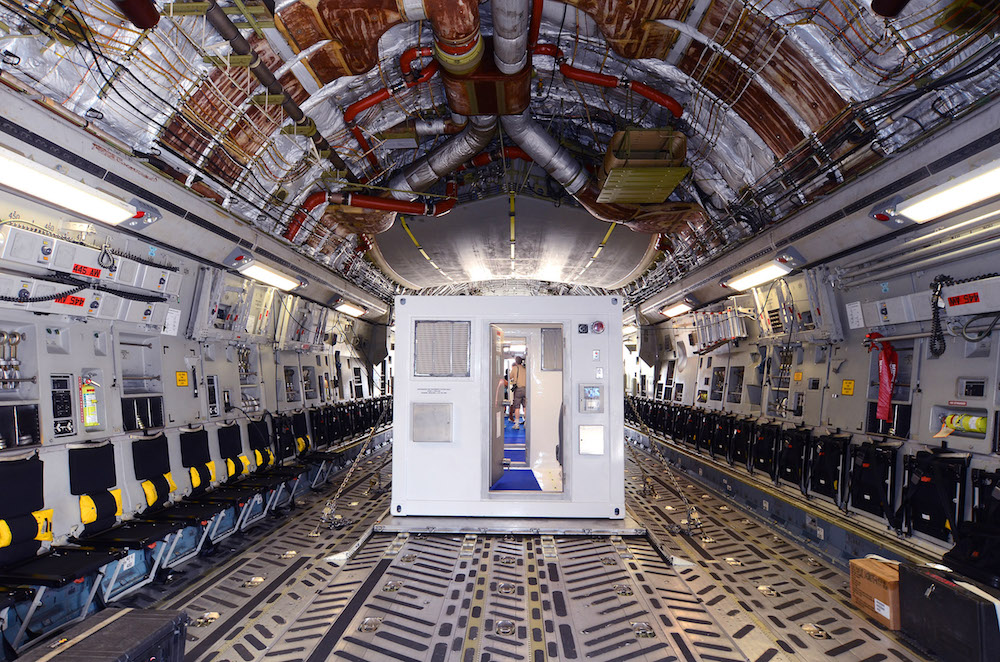With MRIGlobal’s Containerized Bio-Containment System, governments and other institutions have the capability to completely isolate patients with an infectious disease while traveling by air. When critically ill patients need to transport, CBCS safely delivers and alleviates contagion spread within the aircraft.
Learn more about the mobile biocontainment system and key facts to know before you send an RFP.
What is the Containerized Bio-Containment System?
The Containerized Bio-Containment System (CBCS) is a unit capable of containing viruses and other infectious microorganisms. The system is designed with three rooms—a patient area for four patients and four caregivers; an ante room to safely don and doff personal protective equipment; and a rest area for two caregivers. The CBCS can load onto a commercial 747 or a military C-17 cargo aircraft to transport patients to a safer area for the necessary medical treatment.
The CBCS may be used as an extension to a medical center’s triage unit. In instances requiring quarantine, a CBCS can be used instead of potentially taking up entire hospital wings In this application, CBCS becomes a ground unit instead of a mobile biocontainment unit.
The Latest Technology in Biocontainment Systems →
Why MRIGlobal created the CBCS
We created the CBCS in response to the Ebola crisis in West Africa. The United States Department of State, with funding from The Paul Allen Foundation, required a system that could contain the virus while transporting patients safely back to the U.S. Though we didn’t know if the request was possible, our team of innovators designed and built the much-needed system in only 191 days.
How Biocontainment Technology Can Aid Early Stage Outbreaks →
The CBCS building process
After the initial design, we spent those 191 days fabricating the unit, including meeting with our fabricator in Utah. The process included testing and computer-simulated modeling to ensure we adhered to the U.S. government’s strict guidelines.
We typically build two units at a time within a span of four months. Due to this, we highly recommend that anyone interested in the CBCS plan ahead for emergencies, rather than requesting a unit when an emergency arises.
CBCS maintenance requirements
There isn’t much to worry about in terms of maintenance. The primary thing is to keep an eye on the power system. The CBCS comes with a battery system capable of operating the unit even if the plane’s power goes down, so it is important that the batteries are always healthy.
Learn more about the mobile biocontainment with MRIGlobal
For more than 75 years, MRIGlobal has advanced scientific research across a variety of industries. We focus on supporting better health outcomes on a global scale. For us, it’s not simply about science; it’s about the people who make it all happen.
Our solution-driven approach drives us to find solutions in even the most complex situations. Through our dedication, we can solve virtually any technical problem.
To learn more about the Containerized Bio-Containment System, contact us at info@mriglobal.org. You can also get a free quote by completing our online form.
If you’re part of an agency, business, or academic institution seeking help with a project, use our Project Quote Tool to get started today.

